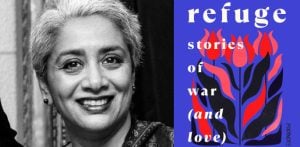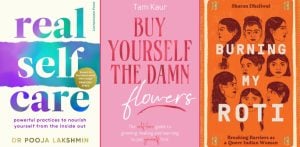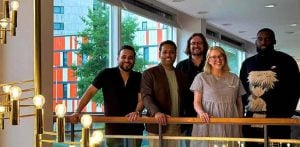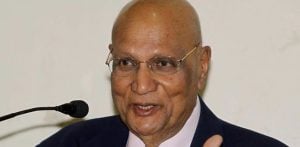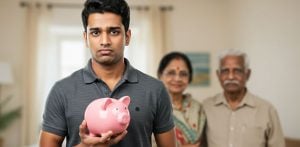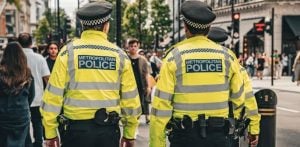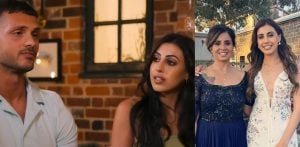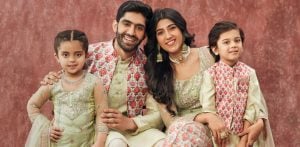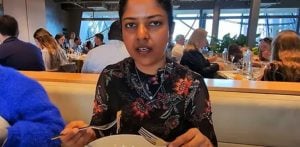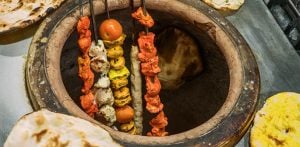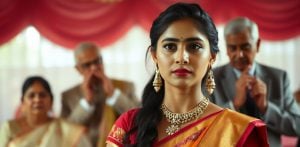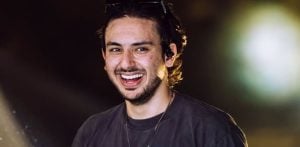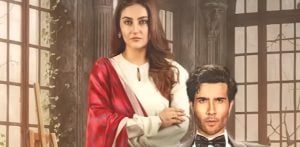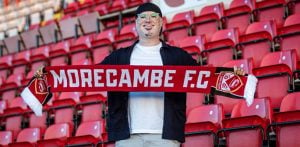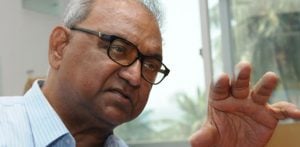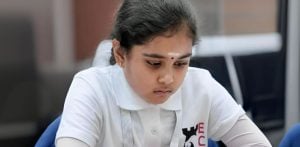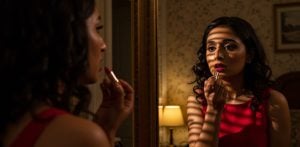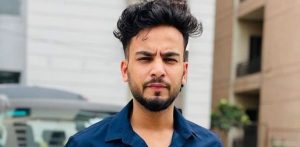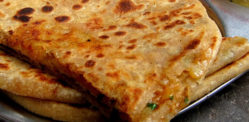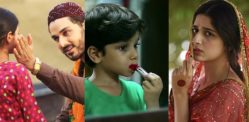“I think it happened I think it was a triumph"
Bangladeshi-born British lecturer and writer Dr Aminul Hoque starred in the BBC Four documentary series, A Very British History, the British Bangladeshis.
The documentary series explores the stories, struggles and lives of the various ethnicity group from British Chineses, British Jamaicans to British Bangladeshis.
Aminul Hoque presents the story of countless Bangladeshi families who migrated to the United Kingdom (UK).
Despite bringing with them rich foods, culture and traditions they were met with hostility, racism and hardships.
DESIblitz had an exclusive conversation with Dr Amnuil Hoque about what drew him to feature in the documentary, struggles and outcomes.
A Very British History

We asked Aminul how important it was for him to be a part of the documentary series to represent British Bangladeshis. He said:
“I think when you look at the series as a whole, you’ve got some juggernauts there.
“You’ve got the African Caribbean community that is being represented, you’ve got the Ugandan Asians, the Irish community and we’ve all played our parts in a very small but also significant way to what it means to be British.
“So, when the focus came around to the Bangladeshi community which in retrospective is a much smaller community and a relatively invisible community.
“Many people have heard of Bangladeshis or they’ve heard of Indian catering trade but they don’t know that Bangladeshis are predominantly behind it.
“When the opportunity came for me to be part of this story, this narrative I thought it was a great opportunity to let the whole world and the whole nation know of who we are and our history and what has contributed.
“So, in answer to your question, it is very important and it’s an honour and a privilege to be part of this journey.”
Importance for Children

The idea of connecting children with their ancestry and heritage is a desire held by many parents.
Unfortunately, it is not easily achievable, therefore, children are not emotionally connected to their motherland.
In A Very British History, Aminul visited Bangladesh with his wife and children. This was the first time his children visited the place where their forefathers were born.
We asked Aminul why it was important for him as a parent to take his children to Bangladesh. He explained:
“The second part of the documentary focuses on the third and fourth generations British-born going back to the motherland, the journey back and how it is.
“It was so important we took them back we didn’t know how it was going to be.”
Aminul continued to mention that like all parents he was worried about how his children would adapt to the culture and society of Bangladesh. He said:
“My wife and I had this conversation about weather, mosquitos, food, culture, language all the usual things parents worry about.
“But we just said we want to do this take them back and see what happens and they had an amazing time they had fun as kids should do.
“We hardly saw them they were pampered. When we came back all that we heard about was, ‘Mum, dad when are we going back?’
“They felt this magical, spiritual connection with the country and the village of their ancestors and that’s all we could ask for.
“These are very British-born westernised kids but we also want them to have a sense of their heritage, past and the connection to the motherland.
“I think it happened I think it was a triumph for a journey back to the motherland.”
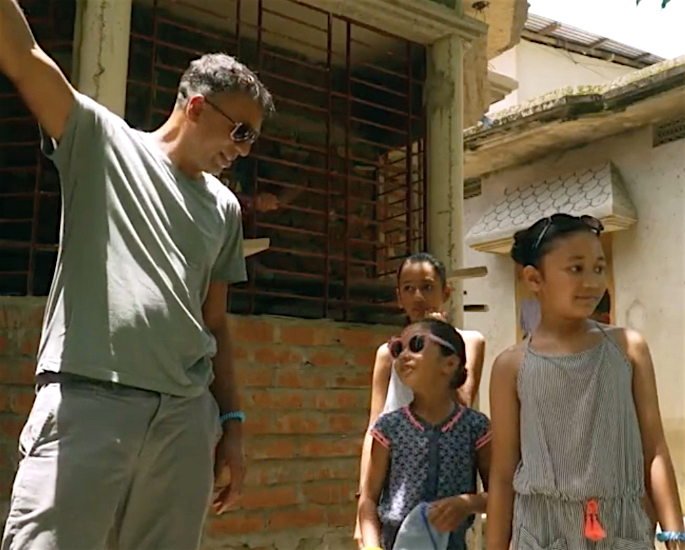
Aminul’s aim of taking his children on a journey to Bangladesh was certainly successful.
We asked Aminul whether he believes if future generations will keep ties with their heritage. He said:
“It’s an open question. As parents, all we can do is try.”
“We know from the history of migration of communities from across the world that in time, unfortunately, some of the ties die slow deaths.
“It’s a long journey, it’s expensive to go there, we’re speaking the language less, the culture, diets, foods, habits, are all becoming amalgamated to what it means to be British.
“We are losing a lot of these things on a daily basis. But we’re trying our best, we’re hardworking busy parents in the UK it’s not always easy to maintain these ties. Sometimes it just becomes easier to speak English with them.
“They are the product of the internet generation, they speak English amongst their friends.
“So, I think it will become harder for them to maintain ties economically, emotionally and spiritually.
“But we are so determined we want them to not forget their ancestry and we’re going to try to go back as much as possible even for short vacations just so they know.
“When I took them there and I said to them, ‘this is the space where your granddad and I were born.’
“You could see something resonate with them, you could see that they felt that connection. That’s all we can ask for.”
Untold Stories

Dr Aminul Hoque’s purpose of featuring on A Very British History was to tell the narrative of thousands of Bangladeshi families who settled in the UK during the 1970s and 1980s.
He explained the unimaginable adversity faced by his father and other Bangladeshi men who travelled to the UK. Aminul said:
“When our dads first came here in the 50s and 60s they experienced so much hardship, racism and exclusion and physical violence so much name-calling, poverty, overcrowded housing conditions these really emotional and quite traumatic stories that my father had to endure.
Despite these stories of torture and difficulty, they had remained largely untold.
However, with the help of A Very British History and Aminul Hoque, their suppressed stories have come to light for everyone to hear. He said:
“Many from his generation has never had an opportunity to tell them. So, when I started asking these questions and I spoke to my dad it was an emotional moment he wanted to share his experiences.
“They are just so grateful that we’ve given them this platform to give them a voice.”
Initially, men like Aminul’s father aimed to travel to the UK to earn money and then return but this changed. He explained:
“When we first came over when the men realised that we are not going to go back to Bangladesh we’re here to stay and this is our home, we’re working hard. We’re contributing so much, we want to now bring our families over.
“The initial mentality was we would work for a while and go back but when they realised that wasn’t going to happen, my family, my mum, my sisters and brothers joined our father in 1980.”
Even as a young child, Aminul faced adversity and racist abuse. His childhood was tarnished with unprecedented acts of violence. He recalled:
“I just remember my early childhood years revolving around these hardships of overcrowded council housing, racism, me being beaten up and chased by local ‘white’ boys, being name called ‘akhi’, ‘black’, being spat at and my mother being beaten up by a group of racist thugs.
“This is my early childhood years as a 6,7,8,9-year-old growing up in the streets and estates of East London.
“It was hard and I just think it’s made us resilient and it’s made us appreciate who we are. I think our children have never heard of these narratives.”
Every parent wants to shield their children from hardship despite it being a huge part of their history.
Yet, Aminul makes a point that children must be aware of their history. He said:
“We kind of molecule our children away from the hardships but it is so important they know of the history and hardships we have experienced.”
Despite the unthinkable racism and difficulties faced by Bangladeshi migrants, there were ‘white’ people who helped them. Aminul stated:
“I also met some really amazing people who were ‘white’ people who would help us, support us and help us in our fight against the racist ring-winged thugs that we experienced.
“I’m not saying everything’s been resolved. Of course, we still face discrimination but it’s far more subtle and harder to detect in 2020.
“It’s not as obvious and physical as it was once upon a time. But discrimination, unfortunately, is still in everyday life.”

As a lecturer in the Educational Studies Department at Goldsmith College, Aminul Hoque has a greater in-depth knowledge about the issues of identity, race and so on.
We asked Aminul Hoque whether his children are aware of these issues. He said:
“My whole research arena is around all these issues of race, racism, identity, exclusion.”
“I think because of that my children are vaguely aware and have heard me speak about these things.
“But I don’t think it resonated with them at how closely we were affected by all of this until this documentary.
“Since this documentary has come out and this has been an unintended consequence is that two things have happened.
“Lots of parents of the generations 70s, 80s and 90s have watched this with their families and it started a conversation at home about the memories of the 70s and 80s and growing up.”
As a result of the documentary, Aminul has also become a figure of inspiration for not only the Bangladeshi community but everyone. He said:
“Lots of parents like us have texted me, emailed me and phoned me and said, ‘you have inspired me to take my children back to Jamaica, Nigeria, Bangladesh. I saw how much your children enjoyed it and the connection they had,’
“They started booking tickets for the Easter holidays and summer holidays.”
“It’s all these household conversations that have immerged and I think my children are realising that they are a part of this discussion and dialogue.”
Expressing how this has outcome has made him feel, Aminul said:
“Emotional, overwhelming and so humbling. There was a gentleman that I have never met before in football and he came and shook my hand and hugged me.
“He said, ‘you don’t know me. My 80-year-old father watched your documentary and he started crying and for the whole hour, he was quiet.
“After that, he went upstairs and got out his old photographs from the 60s and 70s and started talking to us about his experiences which mirrored our experiences.’”
Aminul continued to make an extremely important point. Through the documentary, A Very British History he wanted to express:
“This is not just my story it is our story, it is everybody’s story. I think because people are resonating with it and it’s given people a platform I never knew this was going to be a consequence of this documentary.
“The fact that this is one of the things people have got from it makes me feel really emotional and delighted that it has started really important and necessary conversations.”
Necessary Platform

As a published writer, Aminul Hoque has previously explored the topic of British Bangladeshis concerning religion. Speaking about his book, he said:
“In 2015, my book called ‘British Islamic Identity: Third Generation Bangladeshis from East London’ it’s an ethnic graphic study which was then converted into a book.
“The book is all about young, British-born westernised Bangladeshis and what religion means to them and why many of them are going towards a positive, spiritual identity and not so much a Bangladeshi one.
Aminul Hoque highlighted how many of these issues are explored by people who are not personally aware or have experienced. He said:
“The problem is many of these issues are misunderstood and often the people who write about these issues journalists, producers, presenters they often don’t have the experience of these issues.
“Often a community like the Bangladeshi community who are quite invisible, we are a 500,000-strong community that has been here over the past 50-60 years but nonetheless our narrative is spoken by other people.
“So, when I gave these young people the platform like the book and documentary to tell everyone else about their experiences directly from themselves and then when other people hear it, it gives them an insight to what these issues are.

“It’s given them a platform to speak about their lives from their perspective and I think both my book and the documentary this was my only objective behind it.
“I wanted people to know about our stories. That was my only objective. How they interpret it that I am not in control of.”
“But I do know the one thing that is really important in the current climate and this is the reason I became an academic is that we live in a world, unfortunately, which is becoming increasingly closed and xenophobic.
“When you read my book and see the documentary, you realise that actually, Bangladeshis are like everybody else.
“The only difference is perhaps that we have different food or skin colour but that should be celebrated in itself because we’re human.”
Aminul Hoque continued to mention that Bangladeshis have regular daily concerns that everyone faces. He explained:
“When you think about some of the things we examine and explore in the documentary it’s about everyday things.
“We have mortgage worries, we have marital problems, we drink Costa coffee, we watch Netflix, we play football we are no different to anybody else.
“You get this from the documentary that Bangladeshis are accentually very British – it’s a very British history and that’s what the documentary series is called.
“There’s no difference between us and anybody else. We tried to normalise the narrative and I think that’s another objective of the documentary and it comes across very well.”
Heart-warming Reactions

Undoubtedly, the documentary series has touched the hearts and lives of many individuals.
Seeing their stories being told on a nationwide platform is certainly heart-warming as well as providing a sense of relief.
Aminul recalled a time when someone approached him at a supermarket after having seen A Very British History. He recollected:
“We went to the supermarket and a random stranger came up to me and took a selfie with me and my children.
“It’s surreal. It was never about fame but what essentially, they’re saying is thank you for telling everyone our story.
“Even one of my Jamaican students she came up to me and said, ‘I watched the documentary and I booked the family holiday to Jamaica this year because you’re right it’s so important for children to have a connection with their roots and their ancestry.”
As mentioned, the impact of this documentary has transcended into conversations in the home as well as communities. Aminal Hoque said:
“There is also this comical scene in the documentary where we meet Bangladeshi celebrity chef Ali Khan.
“Bangladeshi cuisine is so much a part of British fabric and we were cooking. Towards the end, I pick up some coriander and I’m about to put it in one of the dishes.
“On camera, he stops me. He’s mortified. He says, ‘what are you doing? You don’t put coriander.’
“I said to him, ‘but that’s what my wife does at home she puts coriander in everything she cooks’. He said, ‘no, no it’s only selective dishes.’
“Subsequently, my wife in our local community has been dubbed the coriander woman.”
“As you can imagine, it started a healthy argument between me and my wife. She’s not happy about that everyone called her the coriander woman.
“This documentary has kind of taken over our lives but in an overwhelmingly constructive and positive way.”
If anything is to be taken from the documentary, A Very British History then it is the message that the Bangladeshi community is the very British and extremely proud. Aminul expressed:
“The Bangladeshi community are a hardworking, normal, everyday group and for people to look at us like that. We are very British and very proud to be British.
“But we are also determined not to forget our motherland. I think that makes us who we are. It is a part of our heritage and identity.
“Let’s not forget our past, let’s remember it and celebrate it but let’s also retell these important stories that everyone needs to hear.”
As well as focusing on the struggles faced by the Bangladeshi men, fathers and sons, it is important to underline the struggles of the women, wives and daughters.
Aminul Hoque shared a heartfelt story from his childhood about the incredible resilience and dedication of his mother. He said:
“There is one hidden story. The seamstresses, my mum, the invisible heroine who because our fathers work in restaurants and factories and how we were essentially poor I just remember there were many nights where I woke up looking for my mum.
“I would come out and see my mum in the living room on the sewing machine at 2 am in the morning. The shadow of my mum working and the noise of the machine in our home.
“There were many Bangladeshi and South Asian women who were doing that and their stories have never been told.
“A part of this documentary covers the invisible stories and the important stories of the seamstresses.
“Once again people have seen this and become emotional because it mirrors their life, their experiences and our mums are amazing and all their sacrifices they made alongside our fathers but the women stories have to be told.”
Undoubtedly, Aminul Hoque successfully brought the story of the thousands of Bangladeshi families to the nation’s attention.
To watch A Very British History click here.


